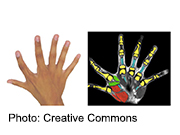
Vitamin supplements don’t appear to prevent type 2 diabetes in those at highest risk for the disease, a new study finds. Some studies have suggested that low vitamin D levels might increase the odds of developing diabetes and that boosting levels could prevent it, but these findings throw cold water on these assumptions. In this… read on >





























